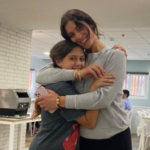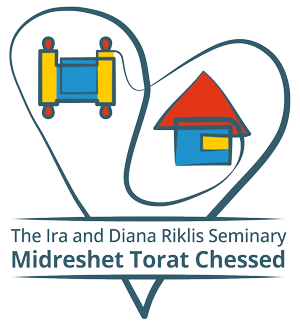
04 May MTC Highlights: Parshat Emor

Ellie Ausubel - Educator
Parshat Emor
Counting Up
In this week’s Torah reading, Parshat Emor, we read about the mitzvah of Sefirat HaOmer, counting seven weeks from Pesach and culminating with the holiday of Shavuot. Although not explicitly written in the pesukim, most children in school will tell you that they are counting toward Matan Torah. Why then don’t we count down from forty-nine, like school children do at the end of the year as they count down the number of days left until summer vacation? I think the answer is simple. We count down to something when the final day is the only day that holds significance and the days leading up to it are just in the way. However, we count up when we are working on a goal and we want track our consistency. For example, a man who counts how many days he successfully stuck to his meal planning or made it to minyan. We count up when each and every day that we count is important to us and we want to mark its place.
We are instructed to begin counting on the day that the Korban HaOmer – the barley offering – is brought (hence the name Sefirat Ha-Omer) and we commence these seven weeks of counting by bringing a wheat offering, the שתי הלחם, two loaves of bread. These two offerings serve as the bookends for this mitzvah and provide us with a framework for understanding what this counting is all about.
To appreciate the uniqueness of these offerings, it is important to note that the typical grain offering in the Temple was brought from flour and there is a prohibition to bring an offering that contains chametz (Leviticus 2:11). In this regard, both of these offerings stand out – the Korban HaOmer, brought on Pesach, was from barley, a low-quality grain, usually reserved for animal feed; the Shtei HaLechem (two loaves) , brought on Shavuot, was proper chametz. Why does G-d ask us to bring meal offerings at the beginning and end of the counting that at any other time of the year would simply be unacceptable?
Rabbi Dr. Meir Levin makes a very interesting point based on the writings of the Idrei tzon:
The Omer sacrifice is always offered on the second day of Passover. It seems that on the day that the Jews left Egypt and witnessed God’s judgment of the Egyptians, they were granted profound spiritual insights. However, since these insights were given as gifts rather than earned, all of them were quickly lost and by the day after, the second day of Passover, the former slaves reverted to their original state. However, they did not despair. That day marked the beginning of a long, slow climb back up the scale of self-improvement that culminated fifty days later with the giving of the Torah at Mount Sinai. The Omer offering represents victory of the despair. It teaches us that even if we fail, even if we fall very far, even if we lose all the spiritual accomplishments that we earned with such difficulty and self-sacrifice, a new beginning is always possible. We can and must start again with optimism and hope we will again succeed.
(The Dawn of Redemption, p 60)
This is why the Torah ties the mitvah of counting to the mitzvah of bringing the Omer. Perhaps this is why we call the mitzvah Sefirat HaOmer and not Sefirat Shtei HaLechem or Sefirat Matan Torah because we want to remind ourselves that it’s possible to start from nothing. Even if we start out, spiritually, as unsophisticated as barley, we can transform ourselves into elegant loaves of bread by committing and re-committing ourselves daily to our goals of Avodat Hashem. It is the consistent effort and hard work – the blood, sweat and tears, if you will – that ultimately yields most effective results. Even if G-d Himself propels us to spiritual heights, it is no replacement for our own hard earned progress. Once we internalize this message, after forty-nine days of counting, we are prepared to receive the Torah on the holiday of Shavuot. As we like to say at MTC, don’t just count each day, rather make each day count.
Student Reflection
Megan Spivak - Woodmere, NY - HAFTR, NY

Although last week’s festivities were amazing, it’s good to be back in a routine and at home with our kids.
I did not realize how much these kids would mean to me until I arrived at MTC. Now I cannot imagine my life without them. I couldn’t wait to return from Pesach break to give my kids the biggest hugs and to be greeted with their love. When I arrived, one of my girls surprised me with a self-made gift basket and this gesture showed me how much she had missed me. My kids have had a great impact on me and have taught me to appreciate all the small things in life.
After a week of learning to appreciate Israel to its fullest and exploring the story of David and Goliath in Alexis’s Navi class, I’ve learned that our nation has accomplished the impossible. This motivates me tremendously and reminds me to never give up. It also shows me that my Beit Elazraki girls embody this strength that inspires me and for which I am grateful.
As the year continues to fly by, I feel a deep sense of gratitude and happiness. I am truly blessed to be at MTC and to have had the most incredible experiences. I don’t want this year to come to an end. MTC will always hold a special place in my heart. Shabbat Shalom.



















